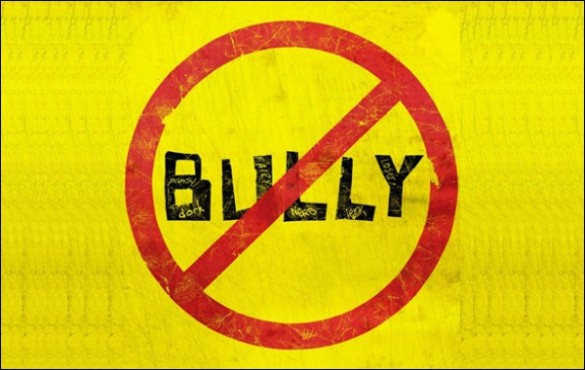Both “Bully” and the act of bullying have received a lot of attention in recent weeks. The high profile, big budget documentary “Bully” has fed off the highly publicized battle against the MPAA over course language. Harvey Weinstein is a masterfully brilliant PR machine. A petition was signed on Change.org and even politicians lobbied for a more school appropriate rating. After bringing up enough awareness for the film and waging a war against the MPAA, the filmmakers agreed to cut out some language for the required PG-13.
On Monday, NPR featured two stories on bullying. Morning Edition featured a story about how autistic children faced a higher percentage of bullying then those without the condition. Another story on bullying was highlighted on the program All Things Considered about a gay teen who committing suicide. This resonated more with the film. He attended the same school district shown in “Bully” where subject matter Alex Libby faced taunting and harassment. The parents confronted the school after the filmmakers captured on camera a heartbreaking scene as a bully slammed Alex’s head into the bus seat. Little was done to stop it.
In wake of these tragic events, the Sioux City Journal devoted their entire front page with an editorial opinion piece on the bully epidemic in their community. And with good reason. Their community isn’t shown positively in “Bully.”
 The documentary already places the district in a very unfavorable light and the newspaper took unprecedented action. At my advanced screening, the audience booed and hurled swears words at the big screen as the school administrator tried to dodge serious bullying accusations. It was an outrageous display of incompetence. Now with the teen’s suicide, more upset community members will voice their opinion.
The documentary already places the district in a very unfavorable light and the newspaper took unprecedented action. At my advanced screening, the audience booed and hurled swears words at the big screen as the school administrator tried to dodge serious bullying accusations. It was an outrageous display of incompetence. Now with the teen’s suicide, more upset community members will voice their opinion.
The performance of “Bully” at the box office has been quite strong. “Bully” expanded an additional 100 screens this previous weekend only to drop in attendance a very low 4%! The media has fueled a lot of awareness and people are seeking out this movie because they have heard a lot about it. This shows signs of strong word-of-mouth performance at the box office. Many school children are seeing the Disney nature documentary “Chimpanzee,” but they should be seeing “Bully.”
Documentaries have the power to change the conversation. “Bully” has strong potential to do this with adult supervision and serious post-film discussion. A younger generation is growing up in an American culture that produces these young ones with an unhealthy mix of being both overly sensitive and extremely desensitized. This will not bode well for them. Responsibility ultimately lies in the parents and school officials who must discipline bad behavior. We can have eye opening documentaries released monthly and inspiring social media campaigns all the time, but change lies in those who have the power; not the bully, but the adults.






